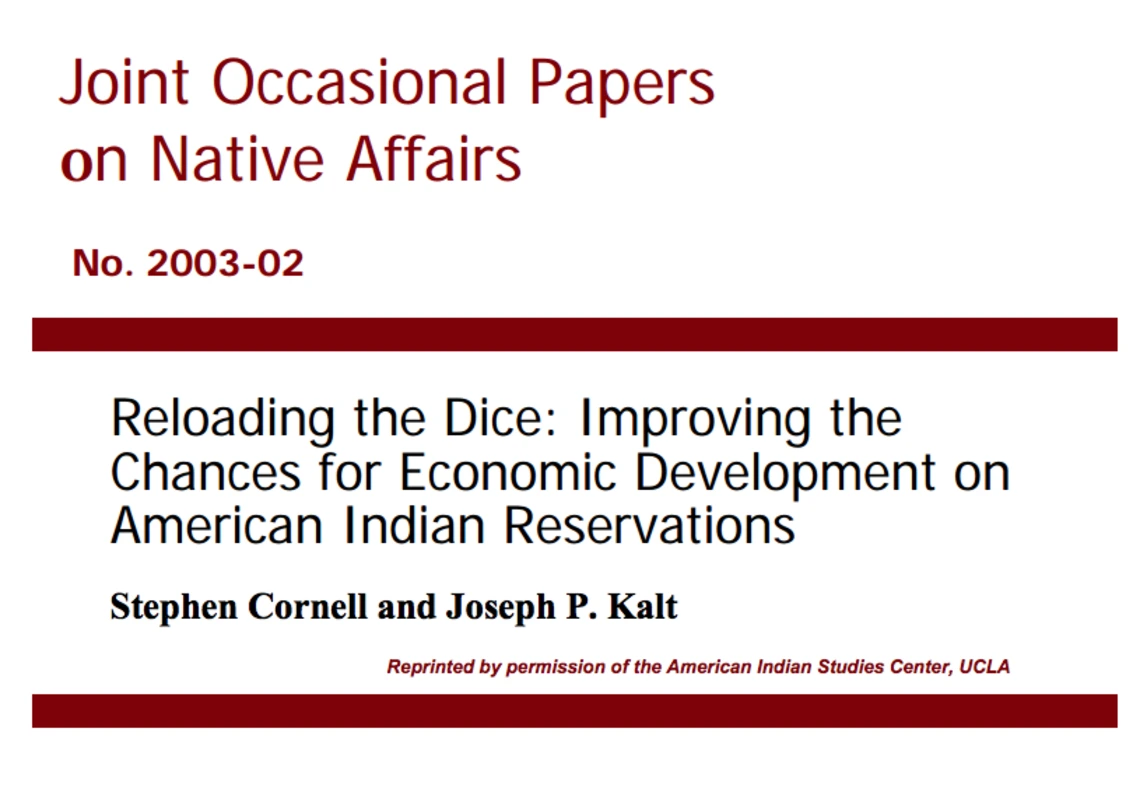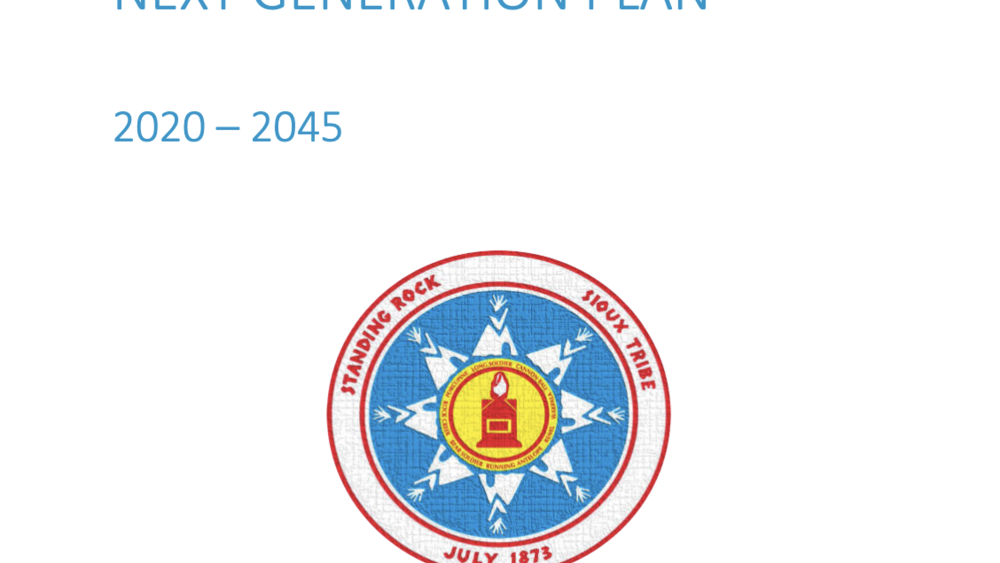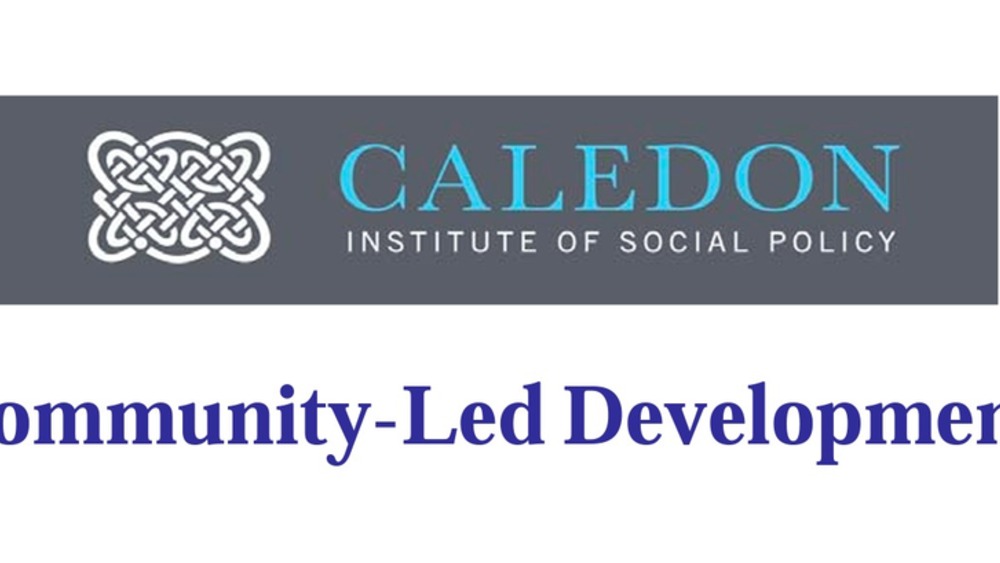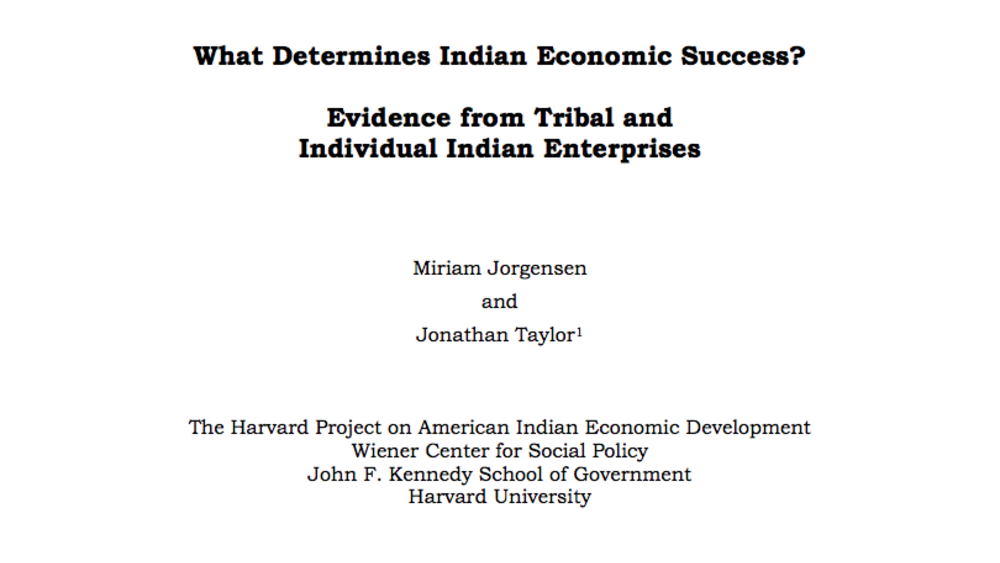The experiences of a wide array of societies around the world amply demonstrate that achieving sustained, self-determined economic development is a complex and difficult task. Certainly this is the case on the Indian reservations of the United States, where numerous obstacles face tribal leaders, managers, and other individuals concerned about the economic well-being of their peoples.
Additional Information
Cornell, Stephen, Joseph P. Kalt. "Reloading the Dice: Improving the Chances for Economic Development on American Indian Reservations". Joint Occasional Papers on Native Affairs No. 2003-02. The Harvard Project on American Indian Economic Development, Native Nations Insitute for Leadership, Management, and Policy, The University of Arizona. Tucson, Arizona. 2003. JOPNA.




